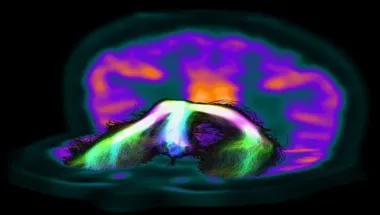
Professor Andrew Reader
Professor of Imaging Sciences
Research interests
- Imaging sciences
Biography
Professor Reader is an expert in medical image reconstruction and analysis, and one of the pioneers for a number of major advances in positron emission tomography (PET), including iterative list-mode 3D reconstruction, resolution modelling, fully 4D reconstruction and the use of deep learning for PET image reconstruction. His current research focuses on deep learning and generative AI for reconstruction, synthesis and analysis of medical imaging data, including physics-informed AI models, kinetics, multiplexed PET and the move towards total body PET imaging. He received his BSc in Physics with Computational Physics from the University of Kent at Canterbury in 1995, his PhD in Medical Physics from the University of London in 1999. He joined the University of Manchester (then UMIST), in 1999 as a Lecturer, became a Senior Lecturer in 2005, and in 2008 he became an Associate Professor at McGill University, Canada, where he also held a Canada Research Chair in PET imaging for 6 years. In 2014 he moved to King's College London, and became a full Professor in 2015. He is an Associate Editor for IEEE Transactions on Radiation and Plasma Medical Sciences, and in 2023 became a Senior Editor for the British Journal of Radiology | Artificial Intelligence.
Research

Wellcome EPSRC Centre for Medical Engineering
The Centre focuses on the science and engineering of medical imaging. The UK is strong in medical imaging, with the Centre hosting the largest research group in this area in Europe.The Centre combines fundamental research in engineering, physics, mathematics, computing, and chemistry with medicine and biomedical research. The 400 inter-disciplinary scientists in the Centre are transforming the diagnosis and treatment of patients, and will deliver exceptional research.
Research

Wellcome EPSRC Centre for Medical Engineering
The Centre focuses on the science and engineering of medical imaging. The UK is strong in medical imaging, with the Centre hosting the largest research group in this area in Europe.The Centre combines fundamental research in engineering, physics, mathematics, computing, and chemistry with medicine and biomedical research. The 400 inter-disciplinary scientists in the Centre are transforming the diagnosis and treatment of patients, and will deliver exceptional research.
